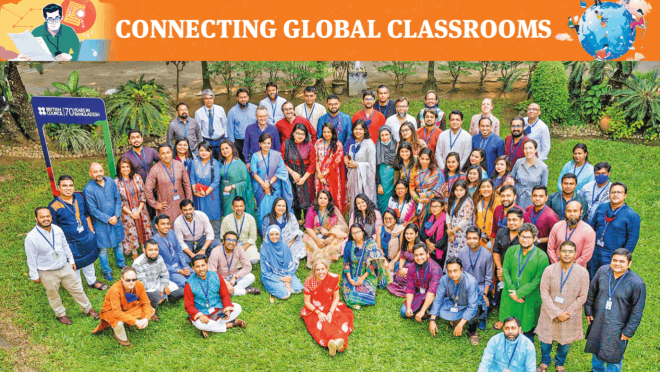Integrity at the core as British Council exams stand the test of time
Integrity at the core as British Council exams stand the test of time

In a world where education remains the passport to opportunity, examinations play a pivotal role in shaping lives, careers, and futures.
The question of integrity, therefore, has never been more critical. For millions of young people across the globe, an exam result is not just a number on a page, it is the key to scholarships, international study, and professional recognition.
For over seven decades, the British Council has stood at the heart of that process, has been trusted to deliver assessments that are secure, fair, and universally respected. From its earliest involvement in administering school qualifications to its present-day leadership in delivering IELTS and other professional, university, and medical exams across more than 100 countries, the organisation has built a global reputation for ensuring that every candidate, whether sitting in Dhaka or Dundee, is measured by the same high standards.
This commitment to fairness is not incidental but deeply embedded in the organisation’s DNA. It is upheld through a multi-layered framework that combines heritage, technology, human expertise, and international oversight. At its core lies a simple but powerful principle: examinations must measure true ability, not privilege, access, or chance. This principle forms the invisible backbone behind every test delivered under the British Council’s stewardship.
On test day, candidates encounter a system that blends rigour with transparency. Identity verification and photo checks guard against impersonation, trained invigilators uphold professional conduct, and exam environments are designed to minimise distraction while maximising fairness. For IELTS specifically, security extends well beyond the test room. Each Test Report Form carries a unique photograph, a validation stamp, and a digital verification number, enabling universities and employers worldwide to confirm authenticity with ease. Together, these measures ensure that every candidate’s result reflects their true ability and that institutions can trust the scores they receive.
“At the British Council, we recognise that every exam result represents someone’s aspiration, for a scholarship, a career, or a place at a world-class university,” says Zunayed Ahmed, Director of Operations at the British Council in Bangladesh.
“That’s why our systems are designed with multiple layers of security. From the secure transportation of papers to identity checks and global audit platforms, every step is monitored. The goal is simple: candidates should walk away knowing that their hard work, not anything else, determines their result.”
Ahmed adds that beyond systems and software, integrity is ultimately safeguarded by people. “Technology plays its part, but it’s the people who protect integrity. Our staff, invigilators, and partners worldwide are trained to the same global standards. That consistency builds the trust that IELTS and other qualifications have earned internationally.”
Adnan Chowdhury, Head of Business Assurance at the British Council Bangladesh, echoes this sentiment, highlighting the scale and scope of exams the organisation delivers. “In Bangladesh, we administer a large number of exams on behalf of universities and professional bodies,” he says. “These include qualifications such as ACCA, ICAEW, CFA, ICS, NCC, and various university degree and distance learning programmes. We conduct them at our centres in Dhaka, Chattogram, and Sylhet, ensuring the highest standards of administration, confidentiality, and security. The authorities trust us to deliver their exams fairly and safeguard that trust at every step.”
This culture of shared responsibility extends beyond IELTS to the British Council’s school examinations, including O Levels, A Levels, and IGCSE. Each paper, whether a language or mathematics test, follows the same principles: secure handling, professional supervision, and accountability for everyone involved. Parents, teachers, and institutions can trust that when a student earns a grade, it represents genuine skill and effort.
In Bangladesh, where thousands of candidates sit for IELTS and school exams every year, this trust influences educational choices, family decisions, and even national mobility. Students, parents, and universities know that British Council administered exams measure exactly what they are meant to measure, nothing more, nothing less, and that integrity is woven into every step of the process.
Globally, IELTS is recognised by more than 13,000 organisations, including universities, governments, and employers. School examinations administered by the British Council play an equally vital role, offering reliable benchmarks for student achievement across the world. This approach demonstrates more than procedural rigour, it reflects a longstanding commitment to fairness as a foundational value, one that transcends borders, systems, and generations.
As education evolves, with artificial intelligence reshaping learning and remote assessments expanding access, the challenge of maintaining exam integrity grows ever more complex. But for the British Council, this challenge is not a burden, it is a responsibility. Fairness, after all, is not a one-time achievement; it is a continuous pursuit requiring vigilance, investment, and trust.
Because an exam is never just a test. It is a bridge to opportunity, and bridges, as history has shown, must be built on the strongest foundations. For the British Council, that foundation is integrity: a value it has safeguarded for generations and will continue to protect for generations to come.


